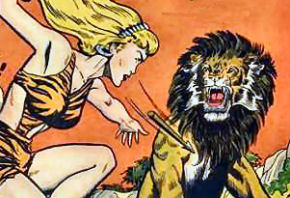
A new study reveals that humans and other primates burn 50 percent fewer calories each day than other mammals. Interestingly, the study also reports that primates in zoos expend as much energy as those in the wild, suggesting that physical activity may have less of an impact on daily energy expenditure than previously thought. The new findings, appearing in the Proceedings of the National Academy of Sciences, could lead to new understandings about human health and longevity.
Herman Pontzer, an anthropologist at Hunter College in New York and the lead author of the new study, explained that most mammals live a fast-paced life, reaching adulthood in a matter of months, reproducing prodigiously, and dying in their teens if not well before. By comparison, humans and our primate relatives (apes, monkeys, lorises, and lemurs) have long childhoods, reproduce infrequently, and live exceptionally long lives. Primates’ slow pace of life has long puzzled biologists because the mechanisms underlying it were unknown.
The new research looked at primates in zoos, sanctuaries, and in the wild. The scientists examined daily energy expenditure in 17 primate species, from gorillas to mouse lemurs, to test whether primates’ slow pace of life results from a slow metabolism. Using a non-invasive technique which tracks the body’s production of carbon dioxide, the researchers measured the number of calories that primates burned over a 10 day period. Combining these measurements with similar data from other studies, the team compared daily energy expenditure among primates to that of other mammals.
“The results were a real surprise,” said Pontzer. “Humans, chimpanzees, baboons, and other primates expend only half the calories we’d expect for a mammal. To put that in perspective, a human – even someone with a very physically active lifestyle – would need to run a marathon each day just to approach the average daily energy expenditure of a mammal their size.”
He adds that the slow rates of growth, reproduction, and aging among primates match their slow rate of energy expenditure, indicating that evolution has acted on metabolic rate to shape primates’ distinctly slow lives.
“The environmental conditions favoring reduced energy expenditures may hold a key to understanding why primates, including humans, evolved this slower pace of life,” noted study co-author David Raichlen, an anthropologist at the University of Arizona.
The results from this study hold intriguing implications for understanding health and longevity in humans. Linking the rate of growth, reproduction, and aging to daily energy expenditure may shed light on the processes by which our bodies develop and age. And unraveling the surprisingly complex relationship between physical activity and daily energy expenditure may improve our understanding of obesity and other metabolic diseases.
Related:
Discuss this article in our forum
Loved-up bonobos are perpetual teenagers
Madagascar’s dwarf lemurs shed light on tropical climate hibernation
Three new species of venomous loris identified








Comments are closed.